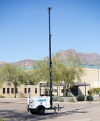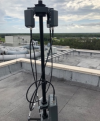If you synch your flights with DJI, that was a choice you made.
Back to consent. Okay. If DOT and DHS announce tomorrow that all motor vehicles must be retrofitted with GPS trackers so your driving may be monitored and sanctioned when and where appropriate, would you be fine with it? If you can opt not to drive, does that mean any regulation or condition may be imposed on grounds of voluntary consent?
Consider cell phones. We are all on notice that law enforcement can easily track our every move via cellphone site simulators. If we choose to carry a cellphone, does that mean we consent to surreptitious tracking by law enforcement with no warrant?
If you synch your flights with DJI, that was a choice you made. Also, a warrant would be required to show probable cause.
You are pushing and pulling in opposite directions with this. Either synching records consensually waives any reasonable expectation of privacy or it does not and if law enforcement wants to see them a search warrant based on probable cause is required. If you concede that no one should be asking to see flight records without a warrant then we have no argument!
Aeroscope only sells to LE or government agencies.
I just don't buy that. Especially when everything is hidden by non-disclosure agreements.
If you show up on an Aeroscope display, you were flying where it wasn't allowed.
That shows a massive trust in people and institutions that I do not have.
Those types of agencies do not freely give out that kind of information. That tends to fall under the purview of Homeland Security and they really don't like to give out data.
DHS has published a memo of its legal authority to monitor and mitigate drone risk. Its all tied to protecting fixed sites and assets. Its memo also warns that federal, state and local law enforcement should make sure they have legal right to track drones without violating the law.
DHS Counter Unmanned Aircraft Systems Legal Authorities
Key Excerpt:
Privacy Protection The Act requires the Department of Homeland Security and Department of Justice to: Ensure intercept, acquisition, or access of communications to or from UAS is consistent with First and Fourth amendment protections and applicable Federal laws. Only intercept, acquire, or access communications to or from UAS only in support of an authorized CUAS action. Delete records of communications to or from UAS after 180 days, unless it is necessary to: • Directly support an ongoing Department security operation. • Investigate or prosecute a violation of law. Not disclose any communications to or from UAS outside the Department unless the communication: • Supports a protection or security operation between the Department of Homeland Security and the Department of Justice. • Supports an investigation or prosecution of a security threat. • Supports a CUAS criminal investigation, civil investigation, or an enforcement action from the Department of Defense, a civilian law enforcement agency, or a Federal regulatory agency. • Is otherwise required by law
Two years from now, you will know about Remote ID. Just by flying a RID equipped drone, you will have given your consent for that data to be given out.
That sounds like resistance is futile you will be assimilated!











